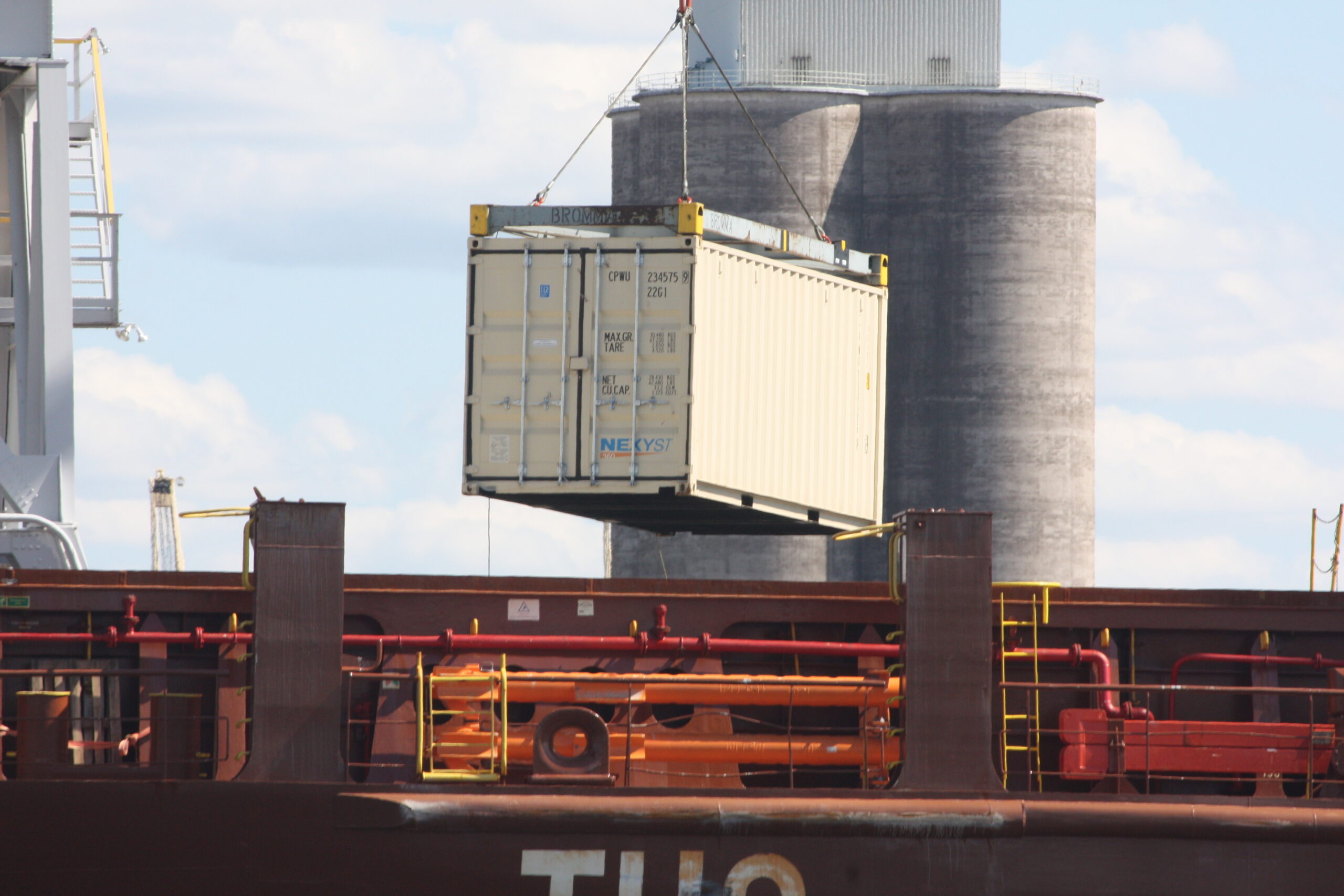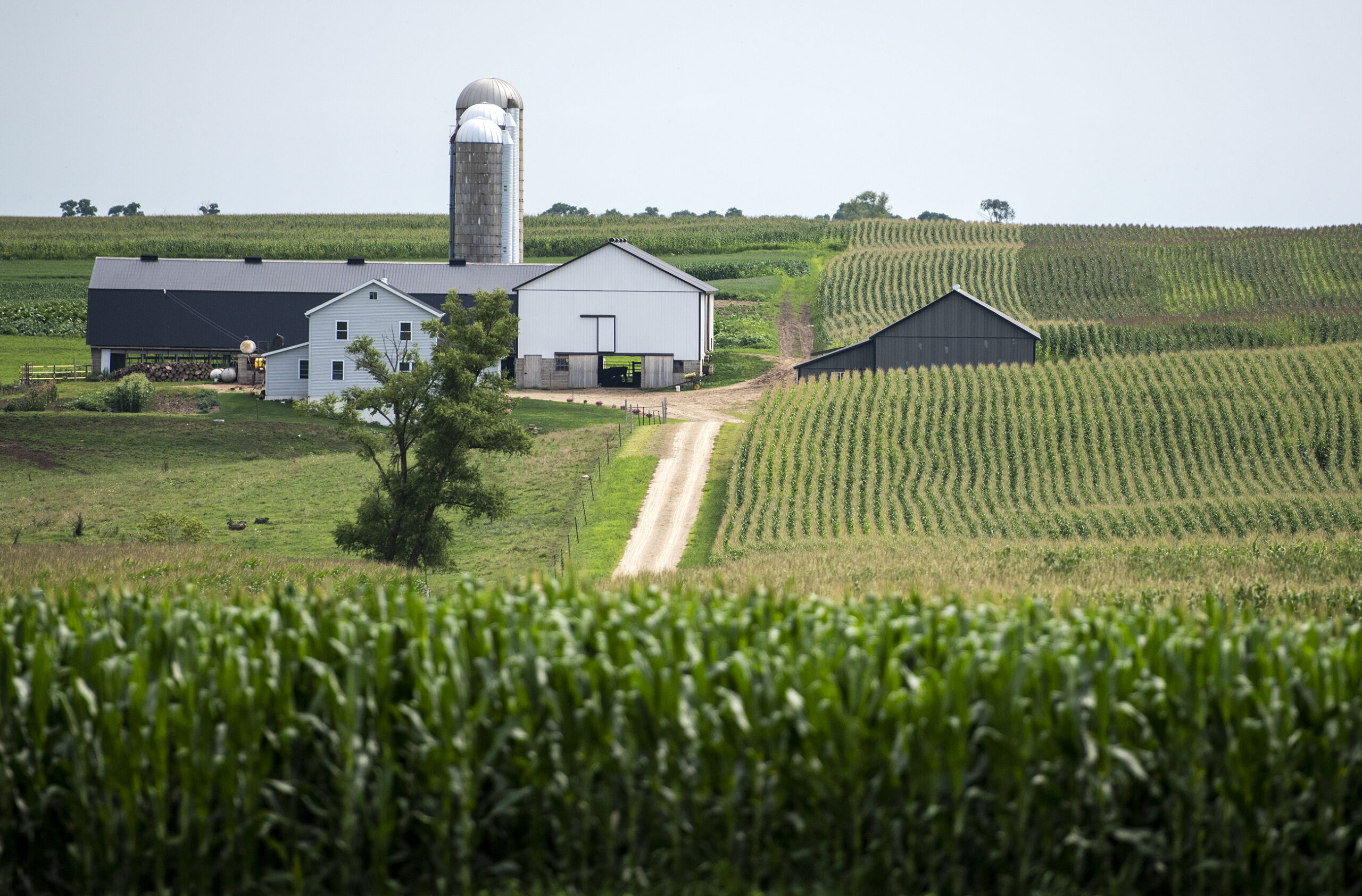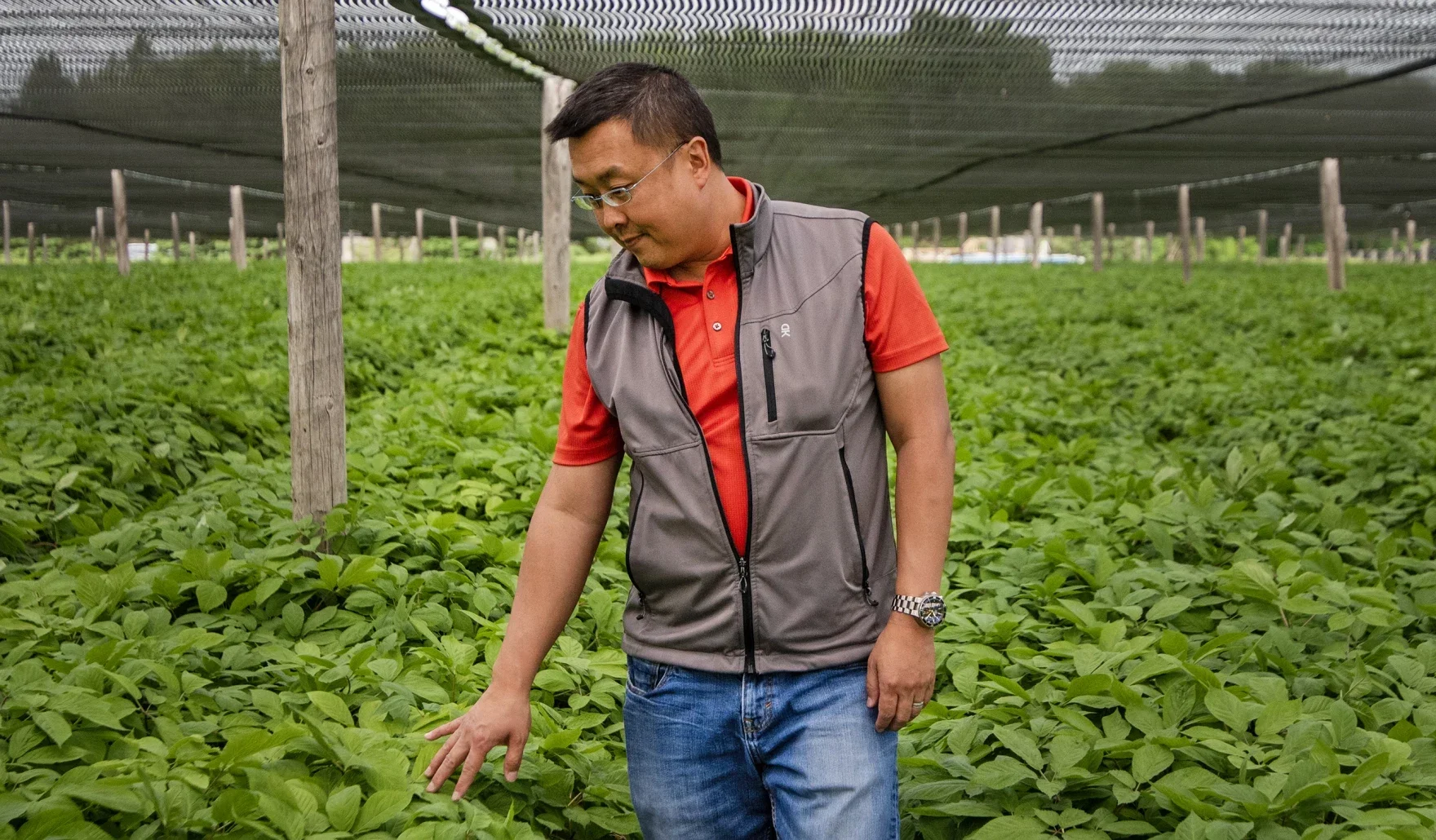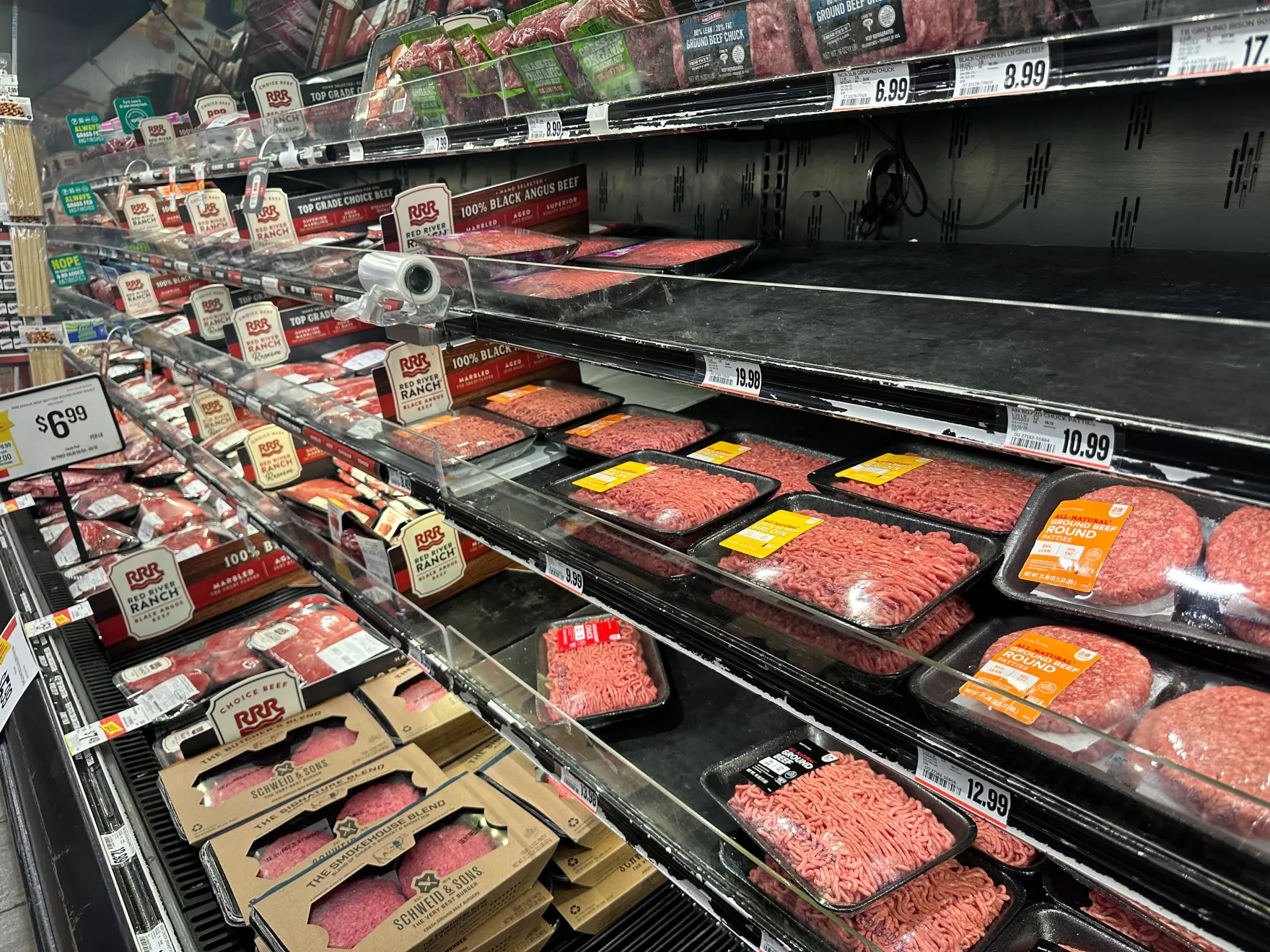Wisconsin exported a record $3.96 billion worth of goods in 2021. Now, the state is on track for another record-setting year.
But on Wednesday, the World Trade Organization predicted a significant slowdown in 2023 — with exports stymied by Russia’s war in Ukraine, high energy prices, inflation and monetary tightening.
Mark Rhoda-Reis is the director of the Wisconsin Department of Agriculture, Trade and Consumer Protection’s International Agribusiness Center. He recently joined Wisconsin Public Radio’s “The Morning Show” to talk about the state of Wisconsin’s exports.
News with a little more humanity
WPR’s “Wisconsin Today” newsletter keeps you connected to the state you love without feeling overwhelmed. No paywall. No agenda. No corporate filter.
From growing demand to concerns over the value of the U.S. dollar to bolstering trade partnerships with the United Arab Emirates and the United Kingdom, Rhoda-Reis shared five things you should know about Wisconsin exports.
1. 2022 exports on track to be even higher than record-setting 2021
Last year saw an increase of 17.5 percent in Wisconsin exports from 2020 — adding $590 million in value. And according to Rhoda-Reis, 2022 is on track to beat that total.
Through the second quarter of the year, exports are already at $2.18 billion, up 14 percent from the same time period in 2021.
“So, good half of the year so far and fairly positive outlook by industry and USDA to finish out the year even stronger than last year,” Rhoda-Reis said.
He attributes the growth to increased demand around the world following the COVID-19 pandemic.
Wisconsin ranks 13th among U.S. states in agricultural exports and fifth in the export of cheese. The state ranks first in the export of ginseng roots, prepared and preserved cranberries, unprocessed animal fur, bovine semen, whey and sweet corn, DATCP reports.
Wisconsin isn’t alone in booming exports. Rhoda-Reis said all U.S. food, forestry and agricultural product exports are up.
2. World Trade Organization warns 2023 could see trade slowdown
Despite 2021 and 2022 being good years for exports, the WTO expects 2023 could see trade slow down.
“It could potentially be a difficult year for us going forward,” Rhoda-Reis said. “Demand could potentially fall off. And then as well, the strength of the dollar is probably one of the stronger factors right now … pushing against being able to move forward.”
The U.S. dollar is the strongest it has been in two decades, and according to an NPR report, it’s impacting economies and markets around the globe.
In an attempt to stave off U.S. inflation, the Federal Reserve has upped interest rates multiple times this year. That has led to a domino effect including lost profits for multinational companies. It’s also made American-made goods more expensive, something that can hurt exporters by making their products less attractive to other countries.
But Rhoda-Reis countered WTO’s forecast, saying most of Wisconsin’s agricultural exports are expected to remain strong.
“We haven’t seen the forecast yet from all the economists who do that work, but (it’s) not maybe as pessimistic as what the WTO is saying across all countries,” he said.
3. Price of the dollar, supply chain challenges remain top concerns
In addition to the price of the dollar in terms of other currencies, Rhoda-Reis said supply-chain challenges remain a significant barrier to trade.
“That availability of containers to ship a lot of those completed, finished food products, and the costs of fuel to move those products around … I think are concerns that would push against what we’re able to ship,” he said.
Rhoda-Reis added that getting containers into Wisconsin is a logistical challenge of its own.
“As we hear from companies that we work with and talk to, it’s still difficult to get those containers. They have to wait longer, the price is higher. So a lack of an intermodal facility where those metal boxes, those 20 and 40 foot-long boxes, are stored and made available, still are a challenge,” he said.

4. Wisconsin works to bolster trade in Asian markets
In 2021, Wisconsin’s top export markets were Canada, China, Mexico, Korea and Japan. Looking ahead to 2023, Rhoda-Reis said the state is planning trade missions in Dubai, Bangkok and the United Kingdom.
“We facilitate Wisconsin agribusinesses, the dairy, meat and crop product companies to export to exhibit their products to make that easier for them to do that,” he said. “And we’re looking to bring companies to that market to meet their potential buyers.”
5. State funding opens door to new exporters
DATCP’s International Agribusiness Center has primarily been funded by federal dollars since its creation in 1966, but in 2021 the agency received state funding for the first time.
The Wisconsin Initiative for Agricultural Exports invests up to $5 million over five years to boost the export of dairy, meat, crop and other agricultural products by 25 percent. It also gives DATCP the flexibility to respond to changing market conditions.
Rhoda-Reis said the funding lets the agency be “completely focused on Wisconsin needs.”
“It allows us to then have a bit more control over our destiny,” he said. “We’re multiplying the effort as well as being able to tailor a number of these activities specifically for Wisconsin.”
In terms of keeping Wisconsin’s exports strong, Rhoda-Reis said extending that state funding beyond 2026 is key.
“To continue that, I think is one of the most important and beneficial things that we can do to help those exporters grow their business and to bring new exporters into the market,” he said.
Wisconsin Public Radio, © Copyright 2025, Board of Regents of the University of Wisconsin System and Wisconsin Educational Communications Board.







